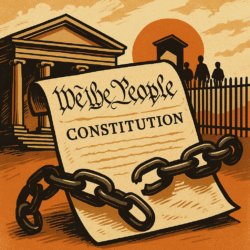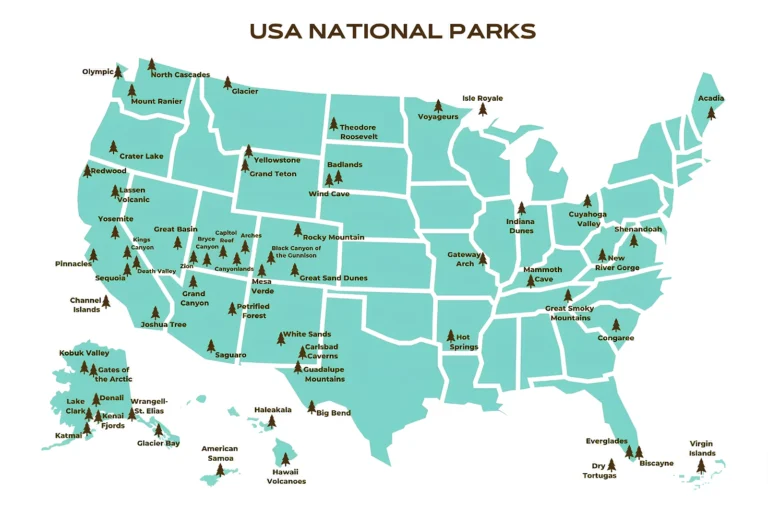Habeas corpus, a historical legal act of the United States of America, that provides security to people from apprehension without any substantial proof has currently become the talk of the town in the USA. In a recent statement, President Donald Trump’s advisor Stephen Miller revealed that the state administration is considering suspending habeas corpus specifically for migrants.
If the government executes the stated practice, it will deny migrants their legal right to approach the court against their arrest. The consideration is based on the rationale that the United States of America is presently facing heavy influx of migrants with no legal documentation. However, as per legal experts, it may result in the provision of more than needed, if not absolute, power to the President while leaving the constitution in shambles.

Origin and Meaning of Habeas Corpus
The phrase Habeas Corpus has a Latin origin meaning ‘you shall have the body’. As per the legal discourse, the government must provide the reason for an arrest if it apprehends anyone. The court then determines whether the arrest is legal. The right protects the masses from unfair arrest. The Magna Carta in 13th century England established the Habeas Corpus right, and over time, many countries, including the United States of America, have incorporated it as an integral part of their national law.
Constitutional Provision and Past Suspensions
According to the US Constitution, only Congress can execute the suspension of Habeas Corpus in cases of open rebellion or foreign invasion for public safety. The President of the United States cannot adjudicate this right. Historically, the government has suspended this right during grave situations.
The times of the Civil War (1861-1865), in South Carolina during Reconstruction Period (1871), at the outset of armed uprising in the Philippines (1905) and in Hawaii after the Pearl Harbor incident (1941). One should note that each time the government suspended the act, it faced a national emergency or war—unlike the current situation, which is merely an immigration issue.
Trump Administration’s Standpoint
Trump administration has declared the high influx of undocumented immigrants an invasion and argues for the right of the President to suspend the act and make haste in the deportation of the immigrants. Similarly, Trump and his allies expressed their fury over the Federal court and judges who denied the ruling of individual deportation, for instance, that of the international student for political reasons, according to the Trump administration inflammatory, remarks. Stephen Miller labels such judgments as a ‘Judicial Coup.’
Legal Rebuttals and Opposition
However, the nation and judges, even those appointed by Trump himself have discredited the theory of immigration as tantamount to invasion. Especially, comments from Stephanie Gallagher like there is no proof how the phenomenon of immigration can pose a border threat to public safety on such a large scale to (dis)orient the constitution.
Moroever, considering the legalities of the Habeas Corpus, legal scholars like Professor Steve Vladeck that the Trump administration wishes for more power at its disposal than the constitution allows as there is no historical evidence that an invasion could mean borders crossing by common masses just like an army attacking the country. Furthermore, Justice Amy Coney Barrett, whom Trump himself appointed, remarks that Stephen Miller’s personal discourse on immigration does not match and cannot be accounted for in its constitutional description.
Precedent Case: Hamdi v. Rumsfeld (2004)
It is worth mentioning that in the 2004 Hamdi v. Rumsfeld case, the Supreme decreed that someone as harmful for public safety as an enemy combatant cannot be held without ‘Habeas Corpus’ unless Congress suspends the act for a respective person if deemed necessary.
Potential Impact on Broader Populations
The gravity of the situation is severe as the suspension of Habeas Corpus would not be just limited to unregistered immigrants rather it would extend its ambit to students, green card holders, and possibly to visa holders critical of the state administration and policies. It is ridiculously worrying to think of being detained or deported from a country just for expressing ‘free’ opinions regarding any state measures and denied the due right to defend yourself before the court.
A Threat to Judicial Independence
Since Stephen Miller has expressed his fury over judges and affirmed to act even if it overrules courts, it is considered an open threat not only to the Judicial Justice rather it suggests the forthcoming breach of balance of power between the President, Congress, and the Judiciary. That is warned by Chief Justice John Roberts as well as he suggested against political meddling in courts and emphasized the role of Judges surveilling the State administration’s trespassing of their legal and constitutional limits.
The Risk of a Dangerous Precedent
If the government allows this notorious practice of power, future Presidents will surely set a dangerous example. They will easily overrule the courts during their ‘self-proclaimed’ emergency circumstances. As stated, it will not stop at immigrants and could certainly tarnish the democratic fabric of the USA by shutting down political opponent.
Public and Political Reactions
Although, some orthodox supporters of the proposition, owing extreme border crisis that increased crimes and drugs, most civil society groups have openly condemned the move by the Trump administration, calling it toying with the constitution.
Conclusion: A Test of Democratic Principles
Conclusively, the suspension of the Habeas Corpus is not just an issue of Trump’s immigration policy. It is the litmus test for America’s commitment to the rule of law. In case of suspension implemented, it shall expunge the sense of protection from common people’s minds and raise concerns regarding the provision of power to the President. Most importantly, someone must check the ‘absolute’ power held by the highest seat of the administration. This question demands reflection not only from the courts but also from every individual who supports democracy in America.



